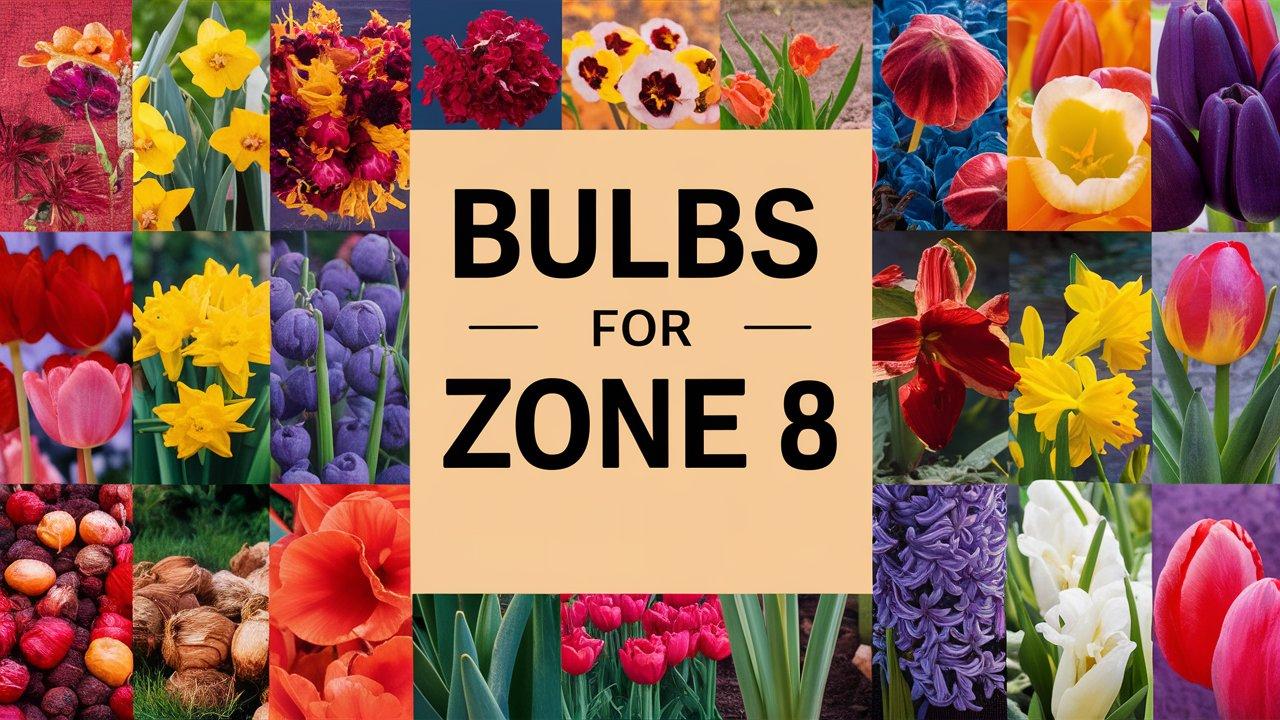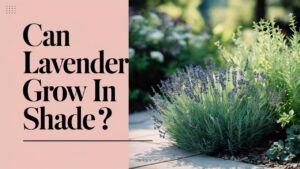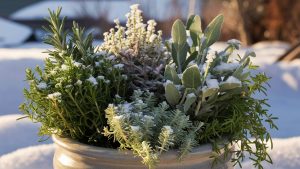Zone 8, known for its mild winters and warm summers, offers an ideal environment for a wide variety of bulbs to flourish. These bulbs can enhance gardens with vibrant colors, fragrances, and textures, making them essential components in a landscape design. In this post, we will explore a selection of bulbs suited for Zone 8, each with its own unique characteristics and growing requirements.
Tulip
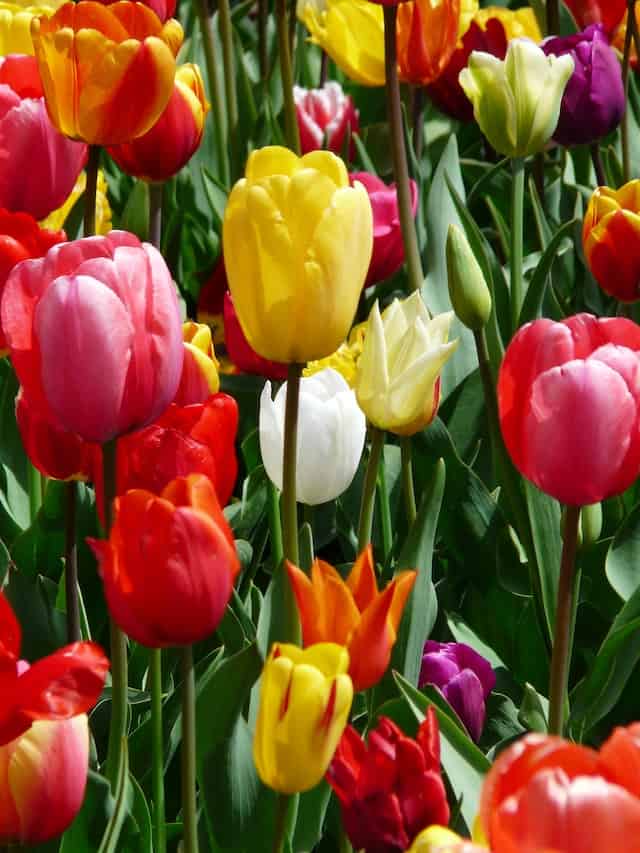
Tulips are iconic spring-blooming bulbs that thrive in Zone 8’s well-drained soil and moderate climate. These perennial favorites come in an extensive array of colors and forms, ranging from traditional cup shapes to fringed edges. Plant tulip bulbs in fall for a breathtaking display the following spring. They prefer a sunny location but can tolerate some light shade, making them versatile for various garden designs. Consider combining different varieties to extend the blooming season, as early, mid, and late varieties will provide a staggered display of color.
Daffodil
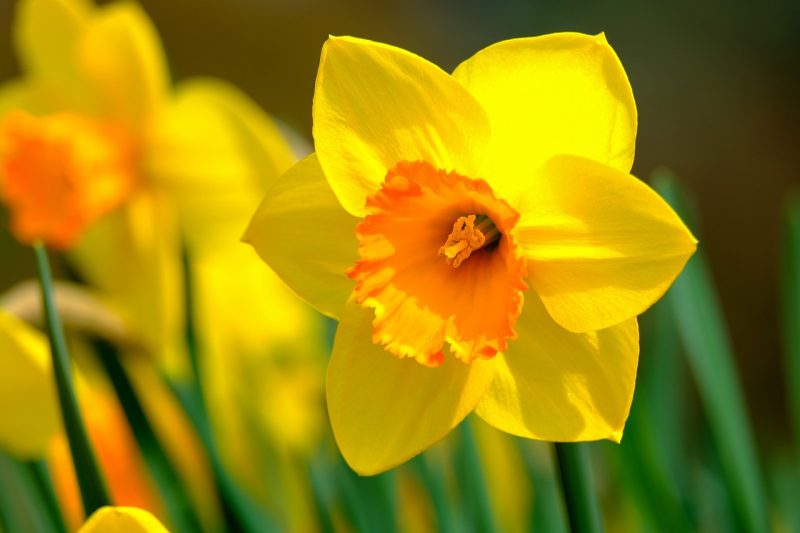
Bright and cheerful, daffodils (Narcissus) are among the first bulbs to herald the arrival of spring in Zone 8. Known for their distinctive trumpet-shaped flowers, these hardy bulbs are exceptionally easy to grow and thrive in a variety of soil types. Daffodils are also deer-resistant, making them a favorable choice for gardens prone to wildlife. Their bright yellow and white hues can create striking contrasts against other spring blooms, and they naturalize well, returning year after year with minimal maintenance.
Crocus
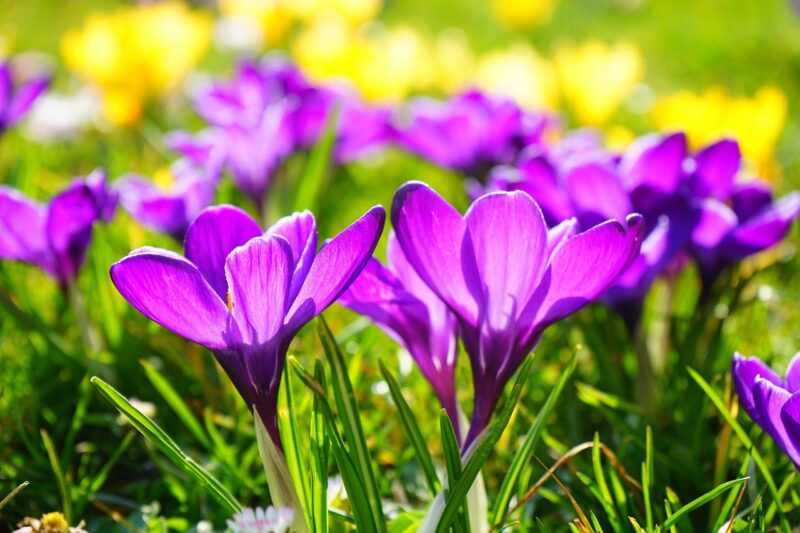
Crocus bulbs are beloved for their early blooms that often pierce through the snow, making them a delightful sign of winter’s end. These small, resilient bulbs flourish in Zone 8, where well-drained soil and full sunlight are available. Crocuses come in a range of colors, from deep purple to bright yellow, and can be planted in groups for a dramatic effect. They are perfect for rock gardens, borders, or naturalizing in grassy areas, providing a burst of color when spring is just beginning.
Hyacinth
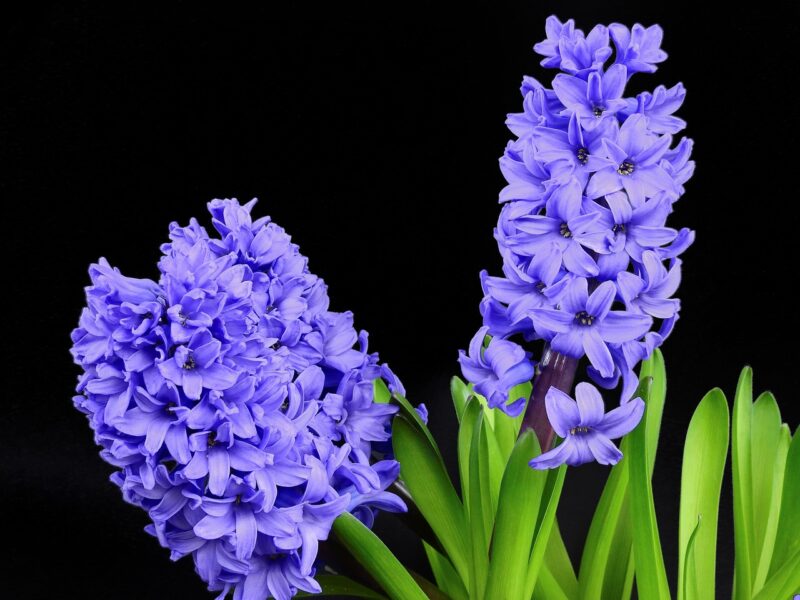
The fragrance of hyacinths (Hyacinthus) is unmatched, making them a prime choice for gardens where scent plays a vital role. These bulbs thrive in Zone 8 when planted in rich, well-drained soil and full sun. Hyacinths bloom in clusters, displaying vibrant colors such as blue, pink, white, and purple. They are also excellent for forcing indoors, allowing gardeners to enjoy their intoxicating perfume during colder months. To prolong bloom time, consider planting a mix of early, mid, and late-blooming varieties.
Iris
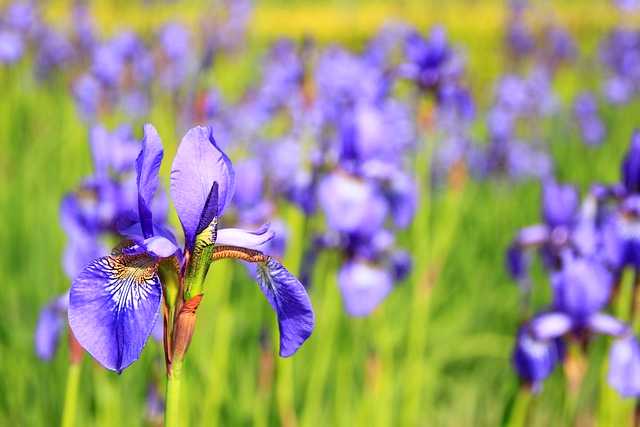
Iris bulbs, particularly bearded iris, are stunning additions to Zone 8 gardens. These resilient plants can thrive in various soil conditions as long as there is good drainage. Iris flowers are known for their intricate shapes and breathtaking colors, which can range from soft pastels to bold, vivid tones. Planting irises in clumps creates a show-stopping focal point in any garden. Additionally, they require little maintenance once established, making them a gardener favorite for both aesthetics and ease of care.
Anemone
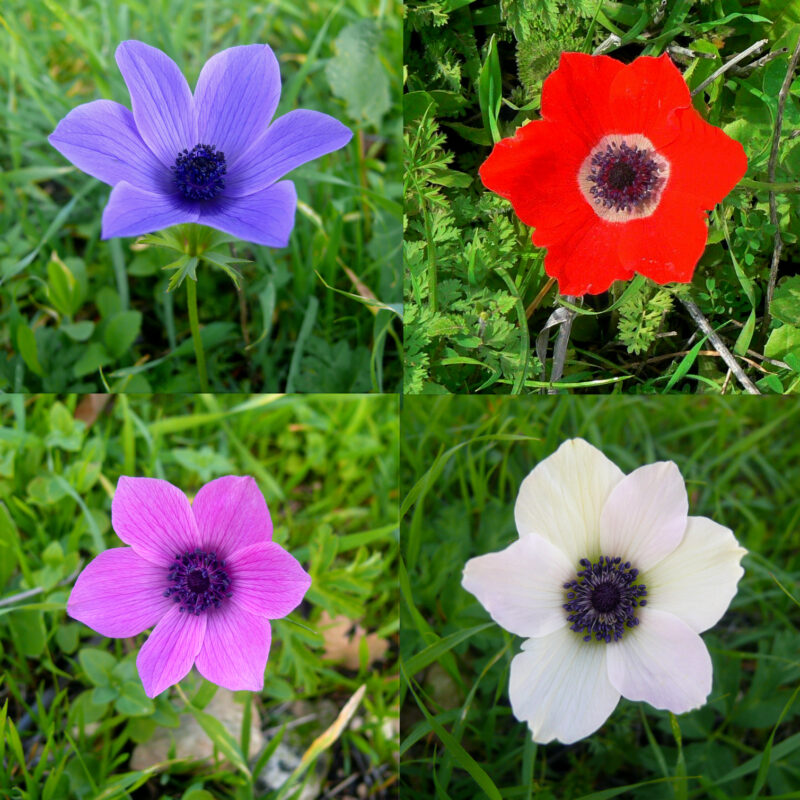
Anemones are enchanting bulbs that add a delicate touch to gardens in Zone 8. Available in both spring and fall-blooming varieties, these beauties create a soft, airy feel with their slightly nodding flowers. Anemone blanda, known for its charming blue, white, and pink blooms, thrives in woodland settings with dappled sunlight. They can be easily naturalized in shady areas and make great companions for other spring perennials.
Ranunculus
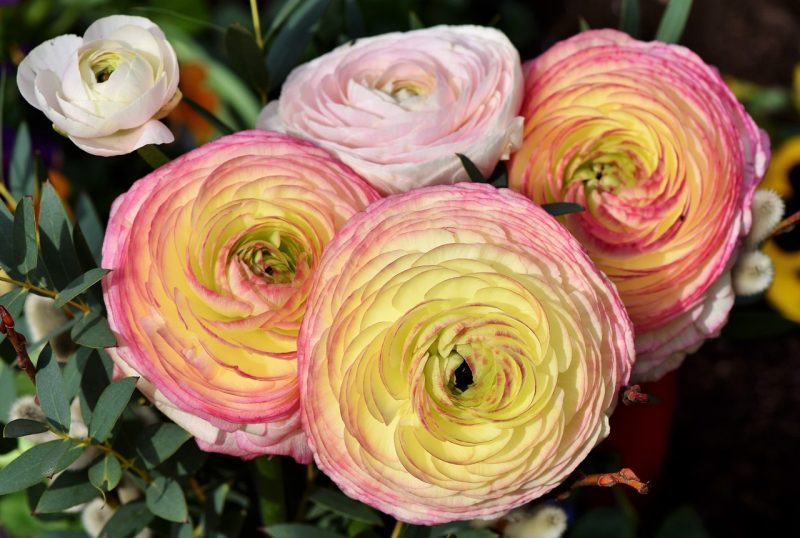
Renowned for their large, rose-like blooms, ranunculus bulbs (Ranunculus asiaticus) create dramatic displays in the garden. These bulbs thrive in Zone 8’s well-draining soil and can tolerate cool temperatures, making them perfect for spring gardens. Their colors are vibrant, ranging from yellows and reds to multi-colored varieties. When planted in rich, fertile ground, ranunculus can bloom from late spring to early summer. They are best planted in groups to create a stunning visual impact.
Lily of the Valley
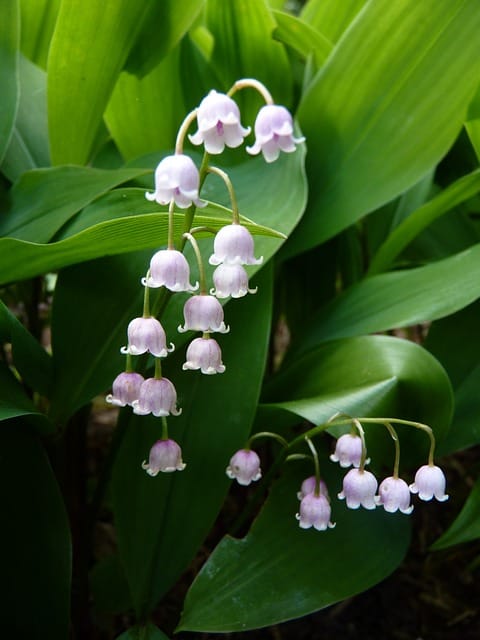
Lily of the valley (Convallaria majalis) is a classic perennial bulb with sweetly fragrant, bell-shaped flowers that bloom in spring. This low-growing plant thrives in the cooler, shaded areas of a Zone 8 garden. Once established, lily of the valley spreads easily, creating lush green ground cover and produces delicate white flowers that emit a delightful scent. They are perfect for woodland gardens and shade borders, bringing life to areas where other plants may struggle.
Scilla
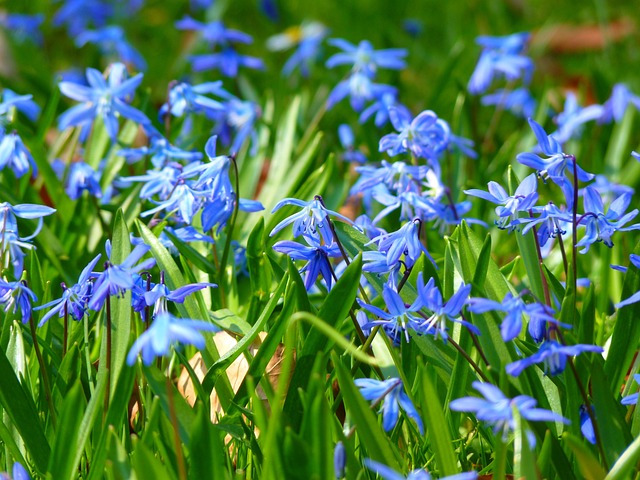
Scilla (Scilla siberica), also known as Siberian squill, is a charming, early-blooming bulb that works well in Zone 8’s spring landscape. These small bulbs produce star-shaped blue flowers that create a stunning carpet effect when planted in groups. They thrive in well-drained soil and are excellent for naturalizing in lawns or woodland areas where they will multiply year after year with little care. Their early blooms add much-needed color before many other flowers emerge.
Some Lilies
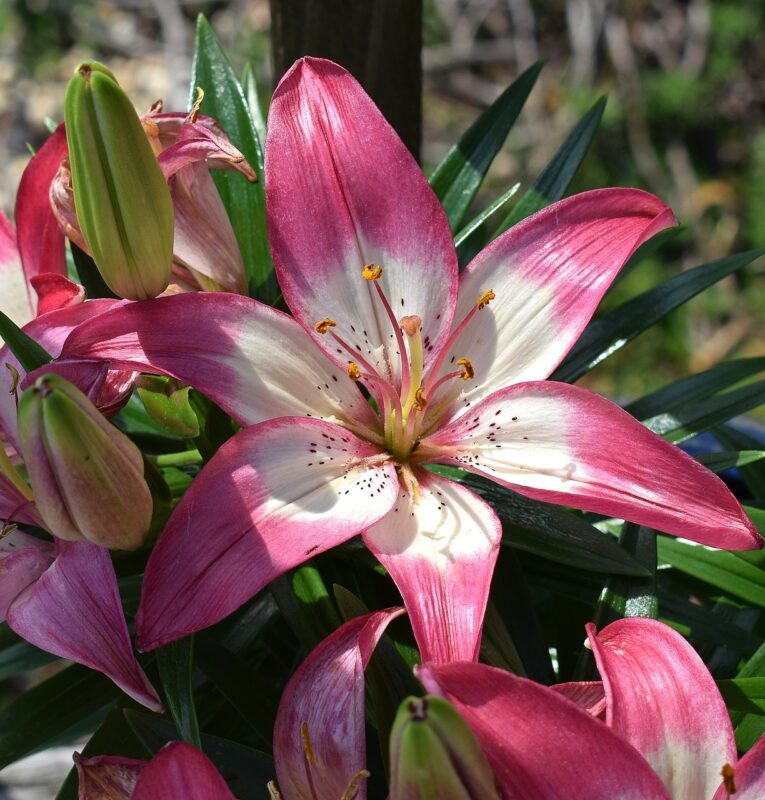
Zone 8 offers opportunities for diverse lily varieties, including Asiatic, Oriental, and Trumpet lilies. These spectacular flowers are celebrated for their large blooms and enchanting fragrances. Lilies thrive in full sun and prefer well-drained soil rich in organic matter. They can be planted in borders or used as statement pieces in gardens. Lilies are incredibly versatile and can be placed throughout the landscape to create dramatic color displays from mid-summer through early fall.
Allium
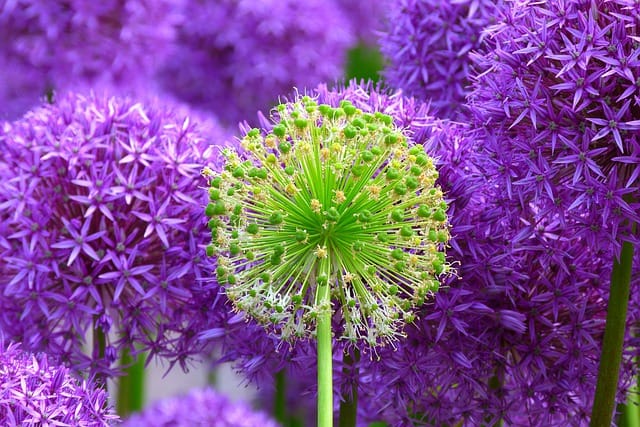
Alliums, or ornamental onions, are unique bulbs that bring architectural beauty to Zone 8 gardens. Their large globe-like flower heads bloom in mid to late spring, creating a stunning focal point in flower beds. Alliums come in varying heights and colors, including purples and whites, and are often used as companions for other perennials. They are drought-tolerant once established and serve as excellent cut flowers, adding interest to floral arrangements.
Bluebells
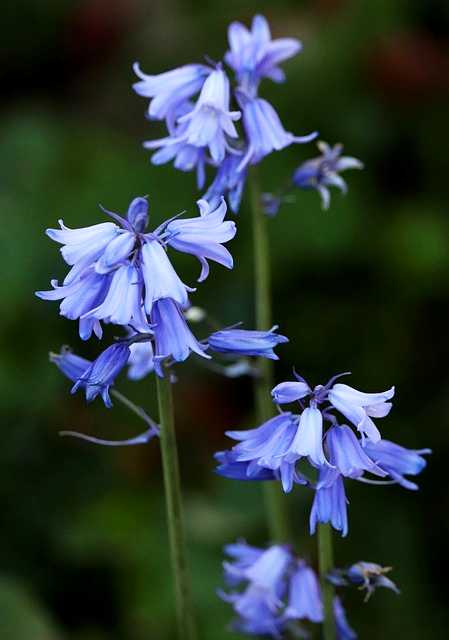
Bluebells (Hyacinthoides non-scripta) are enchanting spring bulbs that thrive in the woodlands of Zone 8. Known for their nodding, bell-shaped flowers, they create stunning masses of blue hues when planted in large drifts. Bluebells prefer partial to full shade, making them ideal for under trees and in shaded garden spots. Their naturalizing tendencies mean that with minimal maintenance, they will return each year, providing a breathtaking spring spectacle.
Muscari
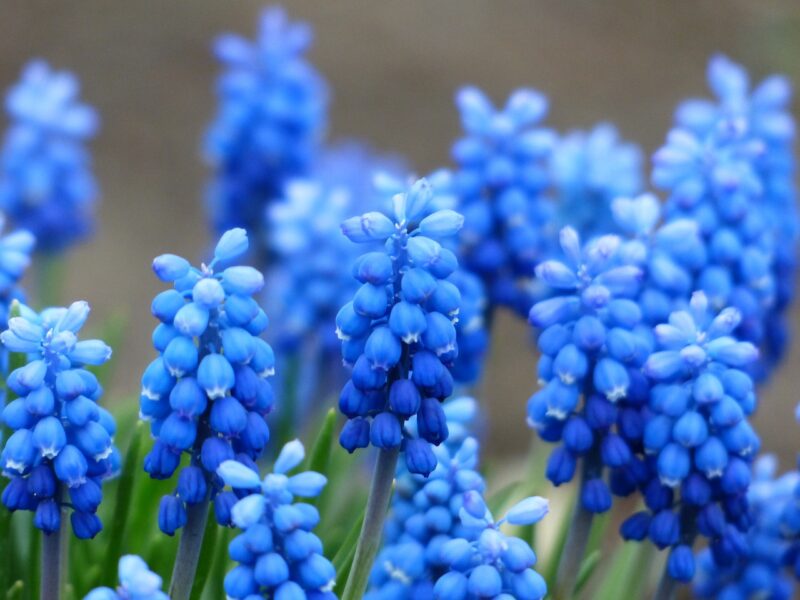
Muscari, or grape hyacinths, are diminutive yet charming bulbs well-suited to Zone 8 gardens. Their grape-like clusters of tiny blooms emerge in early spring, often in shades of blue, purple, and white. Muscari thrive in well-drained soil and full sun, preferably planted in clusters to enhance their visual impact. They are also excellent at naturalizing and will spread over time, creating colorful ground cover that pairs beautifully with tulips and daffodils.
Ipheion
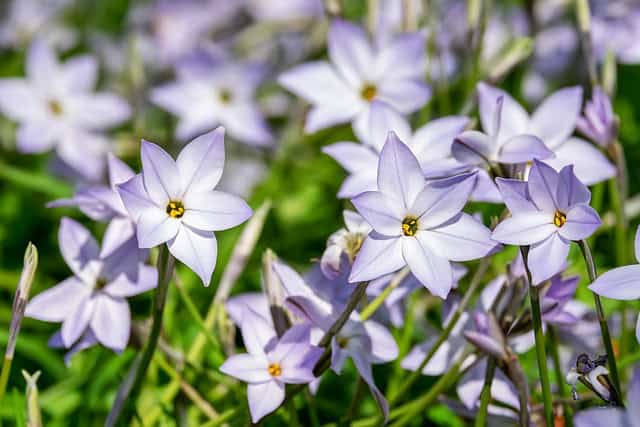
Ipheion uniflorum, commonly known as spring starflower, brings a touch of elegance to Zone 8 gardens. This hardy bulb produces star-shaped flowers that bloom in various colors, including white, blue, and lavender. They readily naturalize, forming lovely clumps in sunny or partially shaded areas. Ipheion is particularly valued for its long blooming season and low maintenance requirements, making it a favorite among gardeners looking for hassle-free beauty.
Fritillaria
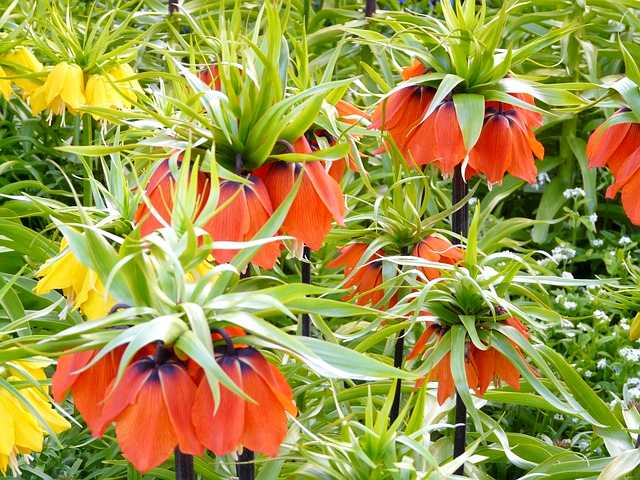
Fritillaria is a unique bulb genus known for its strikingly different flowers, often resembling lanterns. Species like Fritillaria meleagris (checkerboard plant) display distinctive checkered patterns on their petals, making for an eye-catching addition to any garden in Zone 8. These bulbs thrive in well-drained soil and can tolerate some shade, which adds to their planting versatility. Their unusual blooms offer an exotic flair that will intrigue garden visitors.
Trout Lily
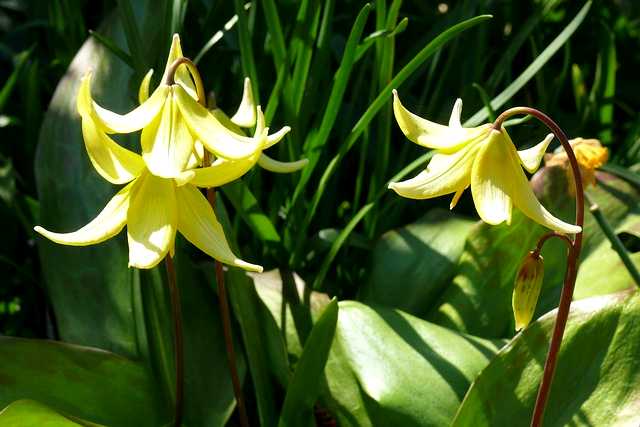
Trout lily (Erythronium), with its beautiful yellow or white flowers and mottled leaves, is a standout choice for shaded areas in Zone 8 gardens. These native bulbs bloom in early spring, often carpeting the forest floor with their stunning display. They prefer moist, well-draining soil and can thrive in compatible environments with other woodland plants. Trout lilies naturalize slowly but beautifully, making them a charming addition to wildflower gardens.


